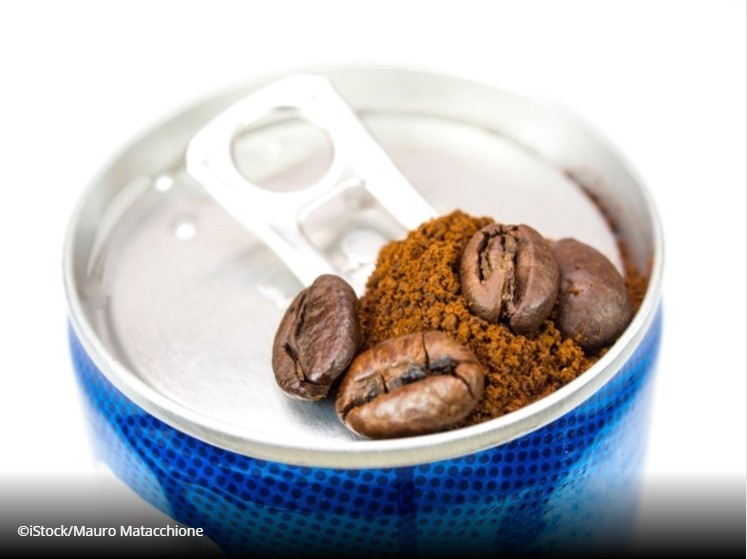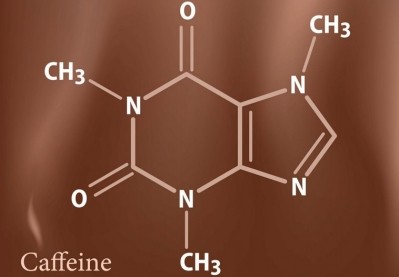Study backs caffeine-enriched thermogenic drinks' effect on metabolism

The team tested these drinks containing 100 milligrams (mg) and 140 mg of caffeine and found them to be effective in increasing REE with the difference affecting REE and RFO within 60 minutes of ingestion.
“This is the first study to our knowledge to show significant differences in REE and RFO between absolute amounts of 100 mg and 140 mg of caffeine as part of a TFD formula in physically active men and women and to have a repeated measures design to do so,” the study says.
“Our results suggest a minimum threshold that is likely to be above 100 mg of caffeine and that a small decrement in the caffeine content of a commercially available TFD may influence thermogenesis and fat metabolism at rest in the current cohort of participants.”
Many of the energy drinks currently on the market contain caffeine alongside other bioactive ingredients such as catechin polyphenols, said to increase physical stamina and promote mental alertness.
Thermogenic fitness drinks (TFD) usually contain blends of caffeine-containing substances such as green tea and guarana extracts that are marketed to support weight loss.
Earlier research with TFD containing 200 mg of caffeine showed an increased resting energy expenditure, circulating glycerol, and free fatty acids.
Additionally, caffeine has been shown to increase the rate of fat oxidation, while separately enhancing exercise performance although, less is known about the metabolic response to a TFD during exercise.
Study details
Researchers from the University of Central Florida in the US enrolled 32 active participants, who were regular caffeine consumers.
Participants attended a laboratory on three occasions, each time consuming a TFD containing either 140 mg or 100 mg of caffeine or a placebo.
Baseline measurements of resting energy expenditure (REE) and resting fat oxidation (RFO) were assessed as well as measurements of serum glycerol concentration.
Measurements were repeated at 30, 60, 90 min post-ingestion. Following resting measures, subjects completed a graded exercise test to determine maximal oxygen uptake (V̇O2max), maximal fat oxidation (MFO). the exercise intensity that elicits MFO (Fatmax - the power output reached at MFO), and total energy expenditure (EE).
Results found an increased REE for the 140 mg compared to the 100 mg formula and placebo while the team also found an increased REE for the 100 mg formula compared to placebo.
Meanwhile, RFO significantly decreased for caffeinated formulas at 30 min post ingestion compared to placebo and baseline. RFO also significantly increased for the 140mg formula at 60 min post-ingestion.
No significant differences were shown for V̇O2max, Fatmax, MFO, and EE across drinks.
“The main finding was that a decrease from 140mg to 100mg of caffeine within the TFD formulas appear to promote changes in energy expenditure (REE) and fat metabolism (RFO) at rest in healthy individuals,” the team said.
“Results showed a significant increase in total REE over the 90-min trial for the 140 mg formula, as compared to the 100 mg formula (+ 2%) and placebo (+ 4%).”
RFO increased with more caffeine
The study also found that RFO was significantly increased for the 140mg formula, but not for 100mg formula at 60 min post-ingestion.
“This finding suggests that a dosage between 100 mg and 140 mg of caffeine may represent a minimum threshold for the tested formula to impact fat metabolism at rest for the participants in this study.”
As the team noted the weight loss and/or fat loss could not be directly inferred from the current results, and it was unknown whether increased REE at rest in a chronic energy deficit would ultimately result in fat loss.
“We propose that future work evaluate the acute and chronic differences of different formulas with varying doses of caffeine on energy expenditure and fat metabolism at rest and during exercise.”
Source: Journal of the International Society of Sports Nutrition
Published online ahead of print: doi.org/10.1186/s12970-020-0341-4
“The acute effects of thermogenic fitness drink formulas containing 140 mg and 100 mg of caffeine on energy expenditure and fat metabolism at rest and during exercise.”
Authors: Nicolas Clark et al















